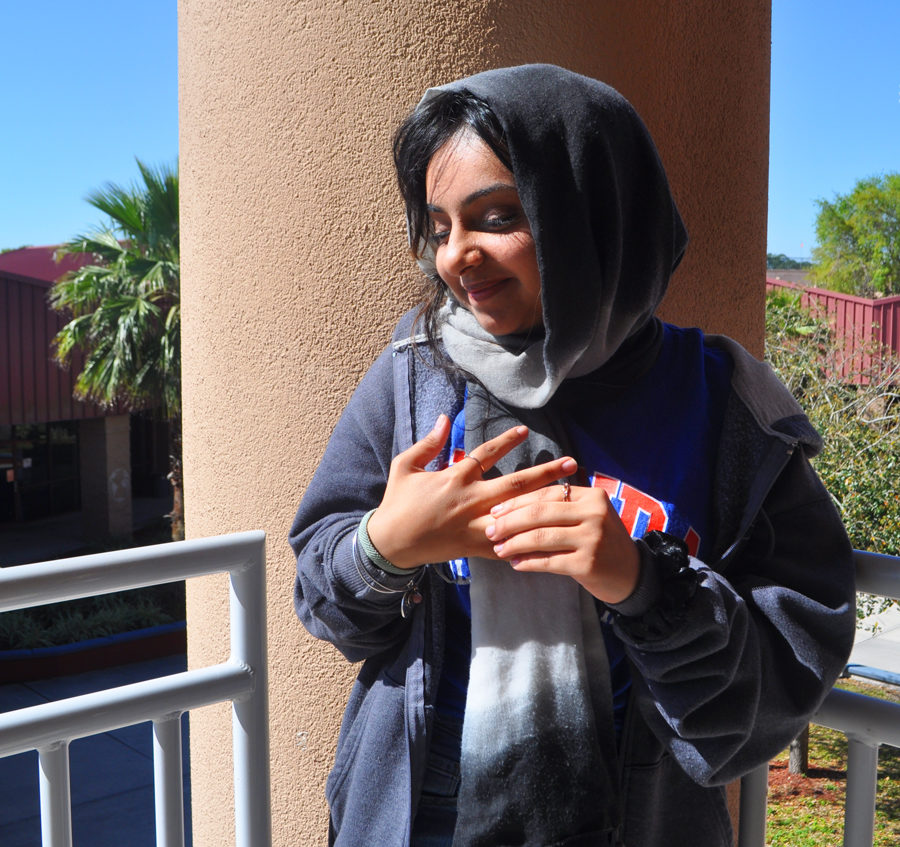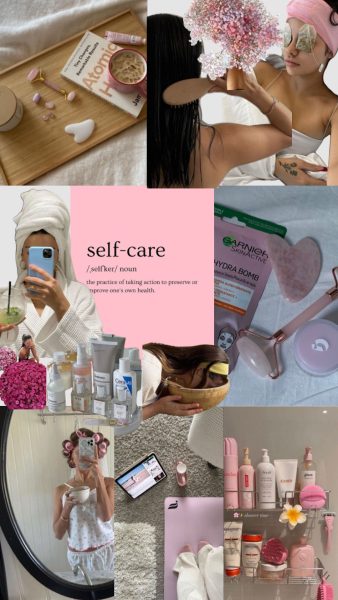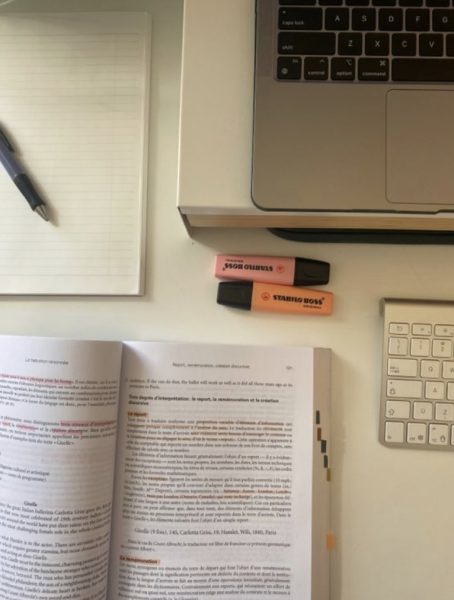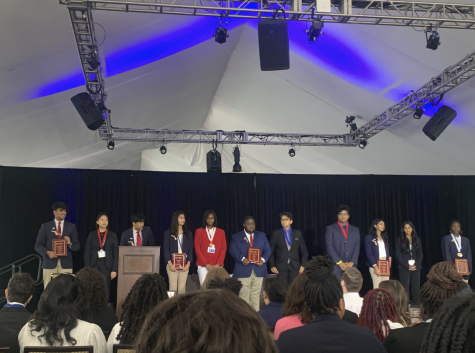OPINION: A WALK IN MY HIJAB
Junior Maaha Yusufali, a proud hijabi woman, refuses to remain in the shadows.
March 15, 2018
My freshman year of high school was full of firsts. I went to my first pep rally, saw my first school fight, and was called a terrorist for the first time. It’s safe to say that freshman year was quite the experience for me.
As a hijab-wearing Muslim woman in the west, I have grown accustomed to the awed and disturbed stares I get from onlookers. The judgmental looks and questioning glances don’t faze me, but nothing could ever prepare me for being called a terrorist. All I needed was to get some books out of my locker, which was being blocked by a group of girls. I politely asked them if I could get through, but I was bombarded with hateful comments and laughter. Questions flooded my mind following the incident: What had I done to elicit such hatred? Didn’t they know that Islam is nothing but a religion of peace?
Sadly, I’m not the only Muslim-American woman who has faced prejudice. Millions of Muslim women fear to leave their homes due to the Islamophobic nature of our society. Acid attacks, hijab snatchers, and hateful rhetoric have become the norm for hijabis, causing some to even make the difficult decision of removing their hijab.
Even at Seminole High School, several hijabi girls have been brave enough to speak out about their experiences. For example, junior Maaha Yusufali had to face the bullying associated with wearing the hijab.
“I was in my class and this guy pulled my scarf off,” said Yusufali. “I pushed him away to try and defend myself, but my teacher saw and gave me a referral. She didn’t let me explain the reason why I pushed the boy or see my perspective on the issue. It was horrible, I cried my eyes out.”
Islamophobic experiences like Yusufali’s can make hijabi girls feel alienated in their schools. Furthermore, it can incite hateful comments from the very teachers and staff members who are supposed to make students feel safe.
An anonymous student reported being hassled by a staff member for fixing her hijab in the disabled bathroom stall. Although she recognizes that she is not disabled, she prefers that stall because it has a private mirror. She said that she is wary of using the outside mirrors in case she is accidentally photographed without her hijab in someone else’s bathroom selfie.
“Once, a staff member repeatedly knocked at the [disabled] stall door and angrily complained to other students that no one should be using the disabled stall unless they have a disability,” said the student. “I believed I had a viable reason. Nevertheless, with half my hijab done I had to finish it in the mirrors outside. What’s worse, I saw the staff member who complained about me use the disabled stall herself.”
In order to combat the discrimination that Muslim women face, hijabis agree that it is important to support one another through positive comments and encouraging remarks. Support from friends and classmates can boost one’s confidence and aid in one’s positive self-perception.
“Not everyone’s opinions matter, it’s what you believe in that counts,” said hijabi sophomore Safiya Dewji. “Don’t ever second-guess yourself, because your opinion is the only one that matters.”


































